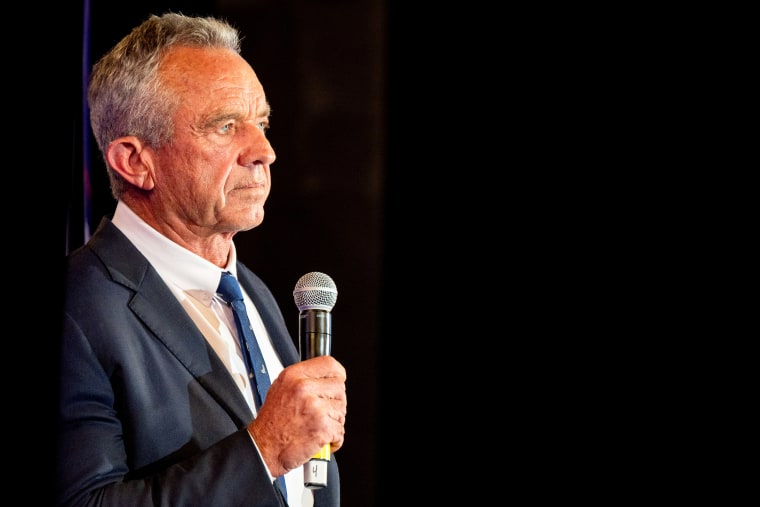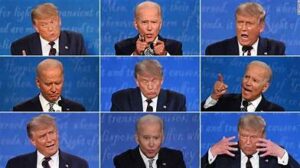The independent candidate currently does not meet the qualifying threshold for the first presidential debate Biden and Trump agreed to participate in.

Independent candidate Robert F. Kennedy Jr. said President Joe Biden and former President Donald Trump were “colluding” to exclude him from the debates they agreed to participate in on Wednesday.
Biden and Trump said Wednesday that they had accepted invitations for presidential debates hosted by CNN on June 27 and ABC News on Sept. 10.
Kennedy would not currently qualify for the CNN debate in Atlanta based on the criteria the network laid out. Stefanie Spear, press secretary for the Kennedy campaign, told NBC News that Kennedy would accept an invitation from CNN to debate Biden and Trump if he qualifies.
Biden and Trump agree to debates in June and September
“Presidents Trump and Biden are colluding to lock America into a head-to-head match-up that 70% say they do not want. They are trying to exclude me from their debate because they are afraid I would win. Keeping viable candidates off the debate stage undermines democracy,” Kennedy said in his post on X Wednesday morning.
Kennedy has already hit CNN’s 15% polling threshold in two out of four qualifying polls. But the network also announced that participants must “appear on a sufficient number of state ballots to reach the 270 electoral vote threshold to win the presidency prior to the eligibility deadline.”
Kennedy campaign manager Amaryllis Fox posted on X Wednesday afternoon that they “anticipate fulfilling all participation criteria” by June 20 and “look forward to offering American voters the three-way debate they deserve.”
ABC News released similar qualifying criteria for its September debate.
The guidelines from both networks are also very similar to those that the Commission on Presidential Debates had released to set the bar for candidates to qualify for its debate.

The CPD, which traditionally hosted the general election debates, has had similar criteria for its events since the 2000 cycle. That year, Reform Party candidate Pat Buchanan and Green Party candidate Ralph Nader criticized the CPD’s criteria, which kept them off the debate stage.
Many state deadlines for independents to gain ballot access aren’t until after CNN’s scheduled debate.
In Ohio, for example, Kennedy’s campaign has announced it gathered the needed signatures to appear on the ballot there. But the Cleveland Plain Dealer reported last week that the campaign would wait to turn in signatures for certification until closer to Ohio’s state deadline, which is Aug. 7.
Earlier this week, Kennedy and his running mate, Nicole Shanahan, announced that they had qualified for the ballot in Texas. But a spokesperson for the Texas secretary of state said that while the campaign has dropped off the petitions, they are still under review.
In a recent interview, Kennedy told Raymond Arroyo, of the Catholic network EWTN, that his campaign is not submitting signatures in some states immediately to avoid extra scrutiny from the Democratic National Committee.
“The DNC has its enormous operation, they had $3 billion to spend to try to keep us off the ballot,” he said. “We are not releasing our signatures until the last minute because it just gives them you know, more targets to hit, much shorter period of time.”
According to the ballot tracker on the campaign’s website, Kennedy currently could qualify for 187 electoral votes based on its count in states where they have gathered signatures.
–
NBC News










